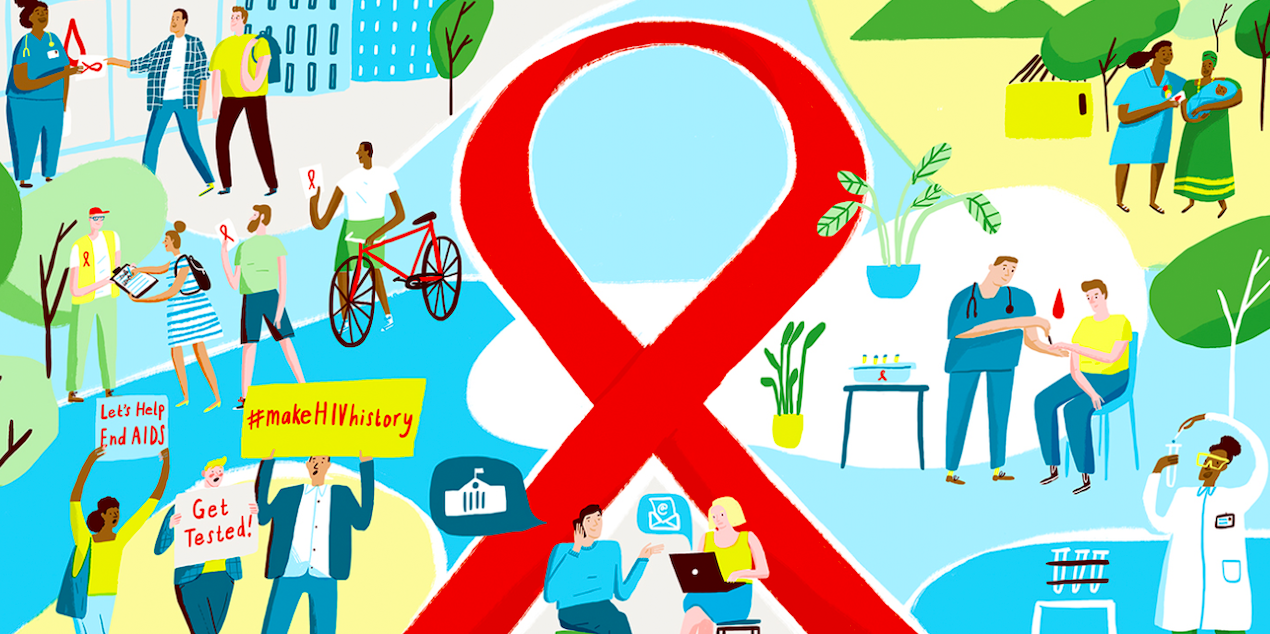US Toll Free : +1-800-897-1053 Call or Fax 9.30 to 5.30 pm EST Mon to Fri.
- Language
- Refer $
- Track Order
- Request a Call Back
- %
- % Coupons and offers
-
0
Your shopping cart is empty!
- Checkout
04/21/2021
The Human Immunodeficiency Virus (HIV), is a lifelong condition that is caused due to damage to the immune system. Therefore, Acquired Immunodeficiency Syndrome (AIDS), a life-threatening, chronic condition, is an advanced stage of HIV infection.
By damaging the immune system, HIV interferes with the body’s ability to fight various viruses and infections.
You can also buy HIV medication online and get them delivered to your doorstep without any hassle.

Untreated HIV keeps affecting and killing CD4 cells, a specific type of immune cell known as T cell. As HIV destroys CD4 cells, the body is at a high risk of developing multiple medical conditions and cancers. A common misconception related to HIV is that it can be transferred through air or water or simple casual contact. Well, it is a myth, and that’s not how the virus is transmitted.
So, how is HIV transmitted? Let’s check it out!
HIV is transmitted through bodily fluids that include:
● Semen
● Blood
● Breast milk
● Rectal and vaginal fluids
Mainly, it is a sexually transmitted infection (STI), and the most common route of transmission is vaginal or anal sex. It can be transmitted by sharing needles or syringes, or tattoo equipment without sterilizing between uses. It can also be spread by coming in contact with an infected blood, from mother to children during pregnancy, childbirth, or breastfeeding.
Causes of HIV
HIV is a type of virus that can be transmitted through African chimpanzees. According to various theories, the simian immunodeficiency virus (SIV) entered the human body when people consumed chimpanzee meat that had the virus.
The virus mutated, which is now known as HIV, and it probably occurred in the 1920s. The virus keeps transmitting from people to people and across the world through sexual activities or blood transfusions.
HIV Symptoms
The symptoms of HIV vary depending upon the stage of infection. These are mainly divided into two: primary and chronic HIV.
Symptoms of Primary HIV (Acute HIV)
● Headache
● Rash Fever
● Joint and muscle pain
● Cough
● Weight loss
● Diarrhea
● Night sweats
● Swollen lymph glands
● Sore throat
Clinical Symptoms (Chronic HIV)
● Fever
● Fatigue
● Nausea
● Headache
● Vomiting
● Diarrhea
● Skin rashes
● Shingles
● Pneumonia
● Weight loss
● Swollen lymph nodes
● Oral yeast infection
HIV Treatment
Regardless of the viral load, treatment of HIV should begin as soon as the virus is diagnosed in the human body. Delaying treatment will quickly lead to multiple diseases, disorders, and AIDS. The primary cure for HIV is antiretroviral therapy that is a combination of regular medications that stop the virus's reproduction.
This therapy keeps the virus away from progressing to AIDS and also reduces the risk of transmitting the virus further to others. Effective treatment will identify the viral load as "undetectable," but the person's body will still have HIV as there is no permanent cure for it.
The virus won't be visible in the test results, and if the person stops antiretroviral therapy, the load will increase again, attacking the CD4 cells. So, it is essential to continue with the treatment forever.
The Takeaway
As of now, there is no HIV vaccination available but you can get Combivir 150mg/300mg tablet, and scientists are working to develop one. If you are feeling any symptoms of this condition, please consult your doctor immediately and if you are diagnosed with the disease, start the antiretroviral therapy right away.
Comments